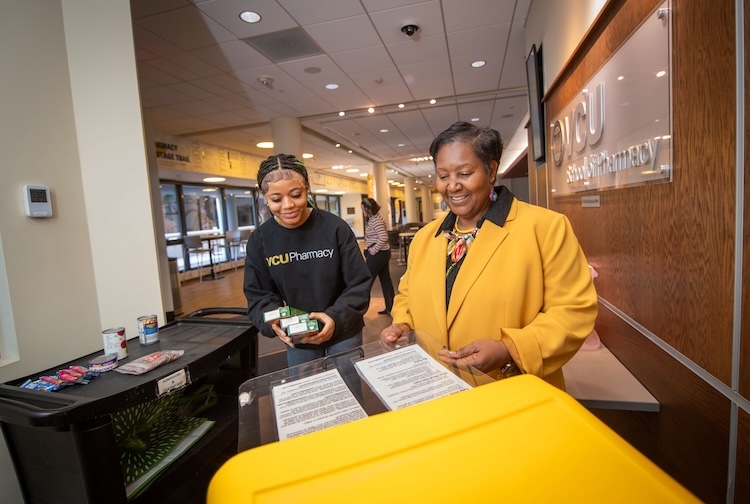What is COVID-19?
Symptoms, new variants and best practices to keep yourself safe from contracting COVID-19.
December 05, 2023 (Getty Images)
(Getty Images)
A version of this story was originally published on April 28, 2020. It was updated with new information on Dec. 5, 2023. Stay up to date with the latest COVID-19 news on VCU Health News.
A highly contagious respiratory virus called COVID-19 caused a global pandemic in 2020.
While wearing facemasks and standing in long lines to get tested seem like the distant past, people can still catch COVID-19 and become severely ill - even hospitalized.
“COVID-19 is never going away and new variants, much like the flu, will be around every year,” said Gonzalo Bearman, M.D., VCU Health's infectious disease expert.
Bearman, along with the rest of VCU Health's infectious disease care team, have seen it all during the COVID-19 pandemic, and continue to educate the community about the virus as well as other infectious diseases.
How can someone contract COVID-19?
The virus spreads mainly from person to person through respiratory droplets produced when someone who is sick coughs, sneezes or talks.
Infectious disease experts and scientists have tracked several types of COVID-19 over the years, called variants. Some variants are more contagious than others, meaning they spread more easily. There can also be several variants in one community at a time.
How do new variants form?
Variants form when there is an ongoing virus spreading and replicating itself in the community. This leads to errors - or changes - in replication, causing a mutation in the genetic material of the virus. The result is the creation of a new variant.
What are the symptoms and how long does COVID-19 last?
Symptoms may appear 2 to 14 days after exposure to the virus. Some symptoms are more severe than those of the common cold and can last longer. Common symptoms include fever, cough, shortness of breath or difficulty breathing, chills, muscle pain or body aches, among others.
According to the Centers for Disease Control and Prevention, symptoms can also vary depending on the variant and someone's vaccination status.
Some people who are infected may not show symptoms and can still spread the virus.
Are there other illnesses with similar symptoms? How can I tell the difference?
There is a lot of overlap between influenza (flu), respiratory syncytial virus (RSV) and COVID-19. They can all start with very similar symptoms, such as fevers, cough and shortness of breath, to name a few.
Flu and COVID-19 are more likely to cause body aches or muscle pain. It's less common to experience stomach issues such as nausea or diarrhea. While smell and taste loss were common early in the pandemic, studies led by Virginia Commonwealth University researchers suggest these symptoms are becoming less common with newer COVID-19 variants.
Overall, the best way to tell the difference is to get tested. You can go to the doctor's office to get tested for all three of these illnesses or buy COVID-19 tests at your local pharmacy.
Are there certain people who are most at risk of getting severely sick?
Anyone who contracts COVID-19 can experience mild to severe symptoms. Children, older people, immunocompromised patients and people with underlying medical conditions are at the highest risk of getting severely sick.
What are the best ways to protect against COVID-19?
Many of the lessons we learned during the beginning of the COVID-19 pandemic still apply today, particularly during the winter months when respiratory illnesses are more likely to spread.
As we have experienced, information can change quickly with illnesses like COVID-19. Please be on the lookout for any changes in recommendations from medical professionals locally or federally.
Federal health officials and VCU Health experts say that getting vaccinated is still the best proven way to prevent yourself from getting severely sick from COVID-19. Talk to your primary care provider about your eligibility for these voluntary vaccinations. You can also check out the latest vaccine guidance from the Centers for Disease Control and Prevention. One of the nation's top pharmacists, who teaches at the VCU School of Pharmacy, has more insights on how to stay up to date on your shots.
Here are some other quick tips:
- If you are sick: stay home. Try to avoid contact with others as much as possible.
- Use tissue paper or your upper sleeve to cover your cough and sneeze.
- Wash your hands often with soap and water for at least 20 to 30 seconds. Avoid touching your eyes and mouth as much as possible.
- Consider wearing masks, particularly if you are in a crowded public place or if you're around others who may be sick or at high risk of getting severely sick.
At what point should I see a doctor or go to the hospital?
If you have mild symptoms, it is best to stay home. You should still get tested and should contact your doctor, especially if you are at high risk of getting severely sick.
You should seek urgent medical care if you are:
- Having difficulty breathing or persistent chest pain
- Increased confusion or decreased consciousness
- Difficulty waking up or staying awake
- If your lips/nails/skin becomes pale/blue/gray (which can be a sign that you are not getting enough oxygen)
For additional guidance on how to decide if you or someone you know should go to a hospital or primary care doctor, the Children's Hospital of Richmond at VCU has some tips.




